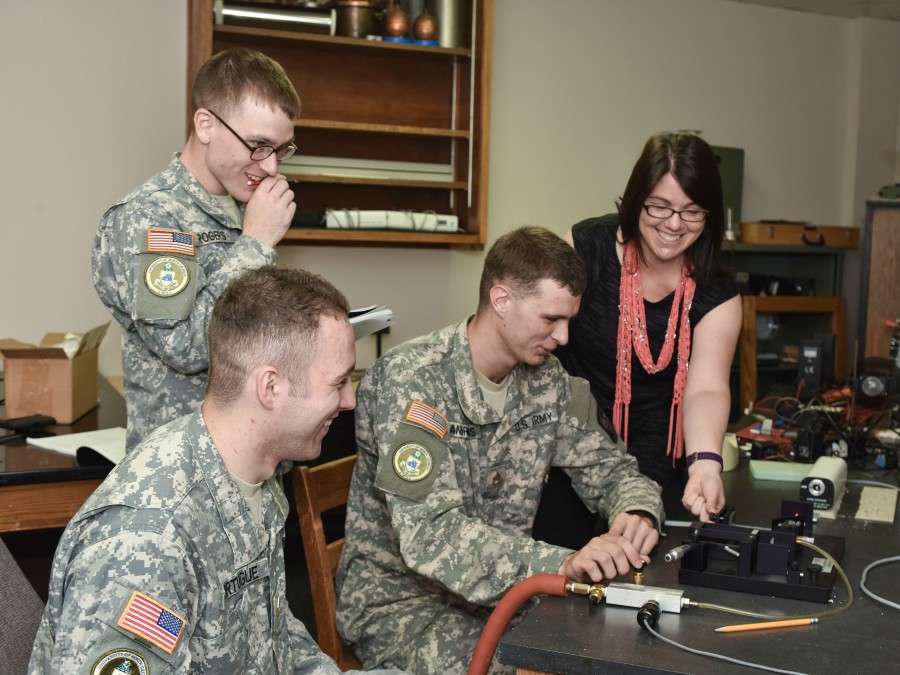DAHLONEGA - Students majoring in science, technology, engineering and mathematics (STEM) fields at the University of North Georgia (UNG) will soon get a better look at how closely related these fields are thanks to a $24,729 state grant to support study across STEM subjects.
The proposal, "Cultivating a Community of STEM Polymaths at the University of North Georgia," aims to increase graduation rates of students in STEM disciplines at UNG by further developing their skills in areas related to their majors as well as in problem-solving, critical thinking and communication.
A polymath is defined as a person who has a great deal of knowledge across a wide variety of subjects, or someone who "knows a lot about a lot." Think Leonardo DaVinci, or Sheldon Cooper of the Big Bang Theory, or Hermione Granger of the Harry Potter series. Like those figures, the proposal seeks to create students within STEM fields who are much more proficient across multiple areas.
The proposal was written by Dr. Sarah Formica, associate professor of physics, with the assistance of Dr. Royce Dansby-Sparks, assistant professor of chemistry, Dr. Margaret Smith, assistant professor of biology, and Gregg Velatini, assistant professor of mathematics.
"Authentic scientific research is transdisciplinary – an integration of the perspectives of multiple disciplines in order to connect new knowledge and deeper understanding to real life experiences," Formica said.
By studying in labs that use multiple subjects and learning the outlined skills, Formica said students will gain appreciation for the transdisciplinary nature of scientific research.
"So much of STEM is transdisciplinary, yet traditional instruction in these fields can lead to students with a narrow knowledge base restricted to their chosen area of study," said Dr. Mike Bodri, dean of UNG's College of Science & Mathematics. "This grant will allow Sarah and her team to experiment with building a more comprehensive approach to STEM so that our students can experience how these fields support and interact with each other, which will ultimately make them more successful in their student and professional careers."
To put the proposal into action, Formica, Dansby-Sparks, Smith and Velatini will develop hands-on laboratory experiments that encourage students to use more skills as well as research practices typically outside their discipline. For example, non-math STEM majors will find themselves using mathematics more often to solve critical-thinking questions. The project supports several areas of UNG's strategic plan, most notably the goal to promote academic excellence and innovation, as well as supporting UNG's Complete College Georgia plan.
"Giving our STEM students a broader foundation in their challenging degree paths will lead to higher completion rates and graduates who are more prepared to pursue higher degrees and/or successfully join the state's workforce," said Sheila Caldwell, director of UNG's Complete College Georgia program.
Formica said that others areas and skills that students will apply themselves to include quantitative reasoning, creativity, question formation and hypothesis testing, flexibility, oral and written communication, and working in a team.
"Learning these skills early in their academic careers will better prepare them for their upper-level courses and afford them the ability to troubleshoot and apply their knowledge to real world situations, in both their coursework and their careers," Formica said. "These skills will make the students far more competitive when applying for a job or graduate program than those who only had more traditional lab experiences."
The project is funded through the University System of Georgia's Complete College Georgia STEM Innovation Grant project.









